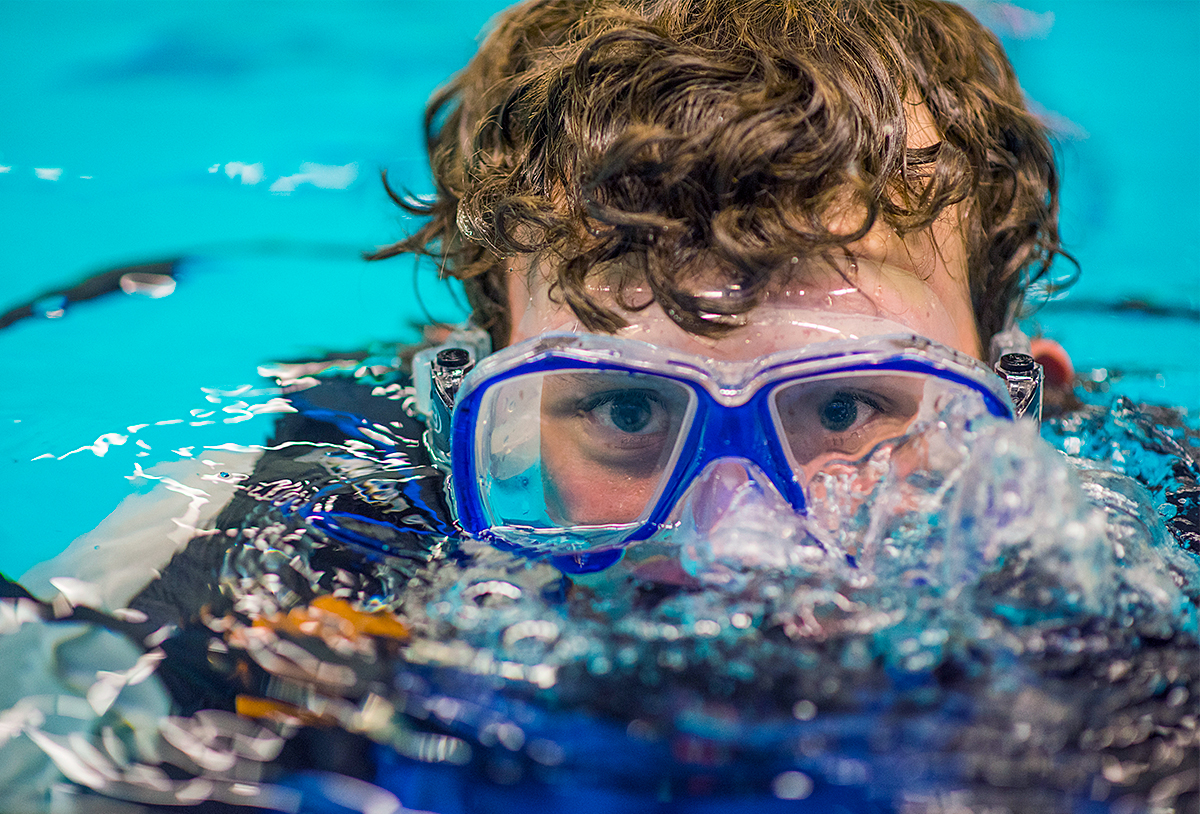It was a clear, warm evening at the Mbuluzi Game Reserve in Swaziland, and the sun was just beginning to set behind the tall savannah grasses. After waiting all afternoon, Harrison Anzinger finally saw them: towering giraffes ambling toward the vehicle he was in. Soon, he was just metres away from the animals, who were lazily chewing on acacia leaves. It was just a regular day in class at the Faculty of Science's accredited Southern African Field School. Anzinger signed up for three one-month classes at the field school, in ecology, marine biology and zoonotic diseases. Now a third-year science student at the U of A, this aspiring doctor says the experience gave him a worldly perspective on his future goals.
Q: Learning about ecology and marine biology seems different from the steps people usually take to get into medical school. Why did you decide to go to field school?
A: I really like nature. I figured I'd take stuff that I found interesting, even if I didn't think it would result in a career or directly apply to my degree. But more and more I'm seeing that medical schools want people who are holistic. Even now at the U of A medical school, you don't have to take any prerequisite courses to get in.
Q: I understand you learned how to scuba dive in Mozambique. I have to ask: did you see any whale sharks?
A: In our marine biology module, we did field observations every week while scuba diving. Once, we saw not one, not two, but three whale sharks. When we were a few metres away from them, all of a sudden a bunch of manta rays showed up. I was swimming like I had never swum before, trying to keep up to them.
Q: And I'm sure you did some things that were relevant to med school.
A: Totally. Being able to tour the communities in Cape Town, South Africa, in our zoonotic diseases class made me more interested in the management aspect of infectious diseases. It gave me an appreciation for how some myths need to be debunked and how policy needs to be put in place - like, how do you deal with diseases like Ebola or HIV when people can't wash their hands or refuse to use condoms?
Q: How has field school changed your plans for the future?
A: I'm more interested in doing international medicine now, and I'd also like to get a master's in public health. I don't want to just be in a clinic doing one thing. I want to do things on a larger scale, as well.

We at New Trail welcome your comments. Robust debate and criticism are encouraged, provided it is respectful. We reserve the right to reject comments, images or links that attack ethnicity, nationality, religion, gender or sexual orientation; that include offensive language, threats, spam; are fraudulent or defamatory; infringe on copyright or trademarks; and that just generally aren’t very nice. Discussion is monitored and violation of these guidelines will result in comments being disabled.